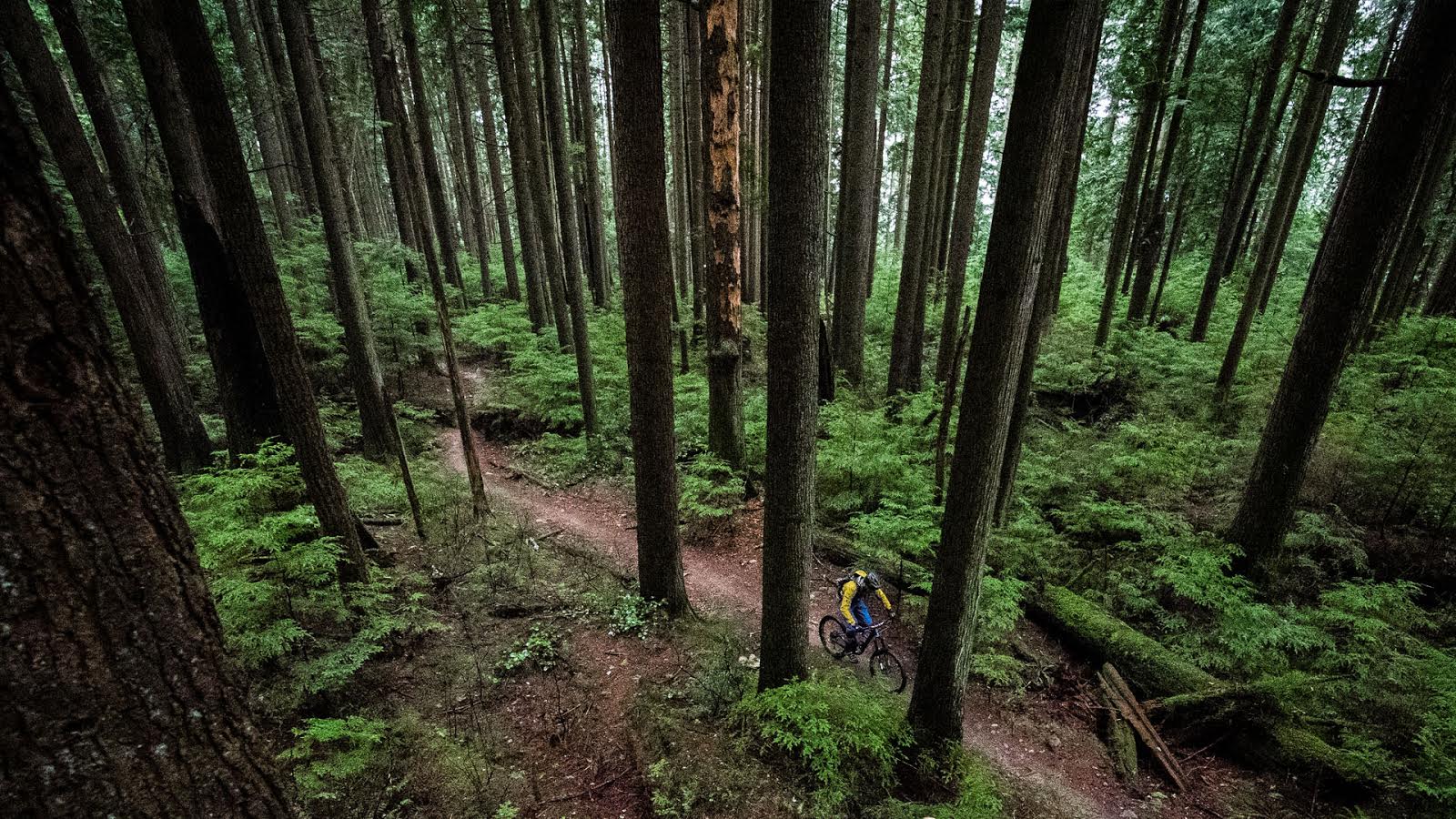
The Amateur Scapegoat
The Enduro World Series has impressed me by allowing locals to drive the format of individual events. Unlike the UCI, the EWS doesn’t operate from the top down and has embraced diversity by allowing wide ranging race formats – drawing praise from EWS fans. As riders we’re constantly searching for unique trails and riding cultures, and as racers we want that too.
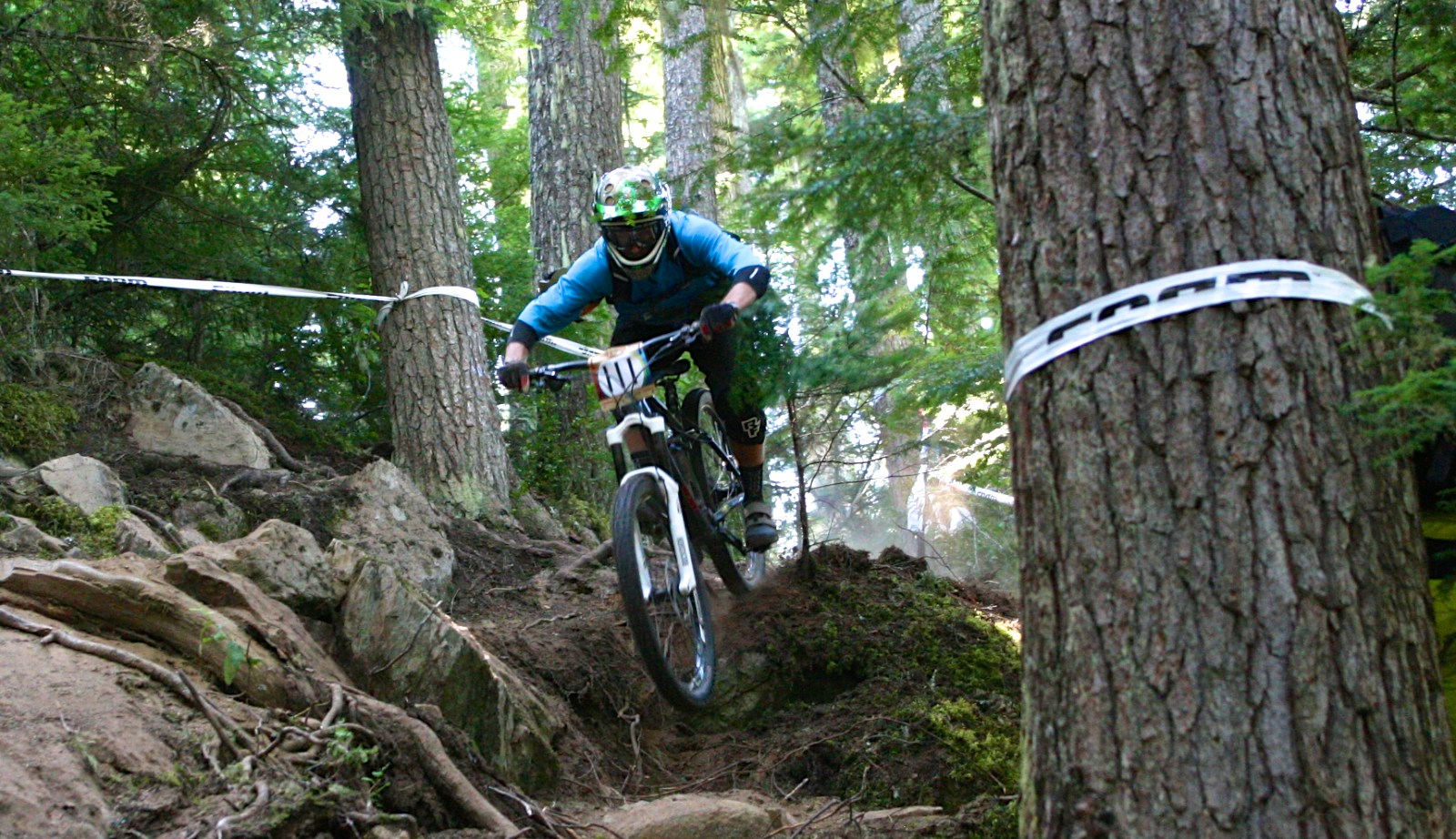
Then NSMB team rider Paul Stevens raced against the pros in the Whistler EWS and he built the trail used for Stage 1 – Climate Control (with a little help from his friends). Photo: Pete Roggeman
This diversity lets each venue’s riding and terrain shine, while confounding riders from other areas. This allows unknown locals to put their unique skills up against the world’s best.
These venues across the world are home to hordes of skilled, unknown riders. The ability to test themselves on the exact same track as the pros is a key attribute of enduro from the amateur perspective, and one that would be sorely missed were it ever taken away or changed to a separate course format.
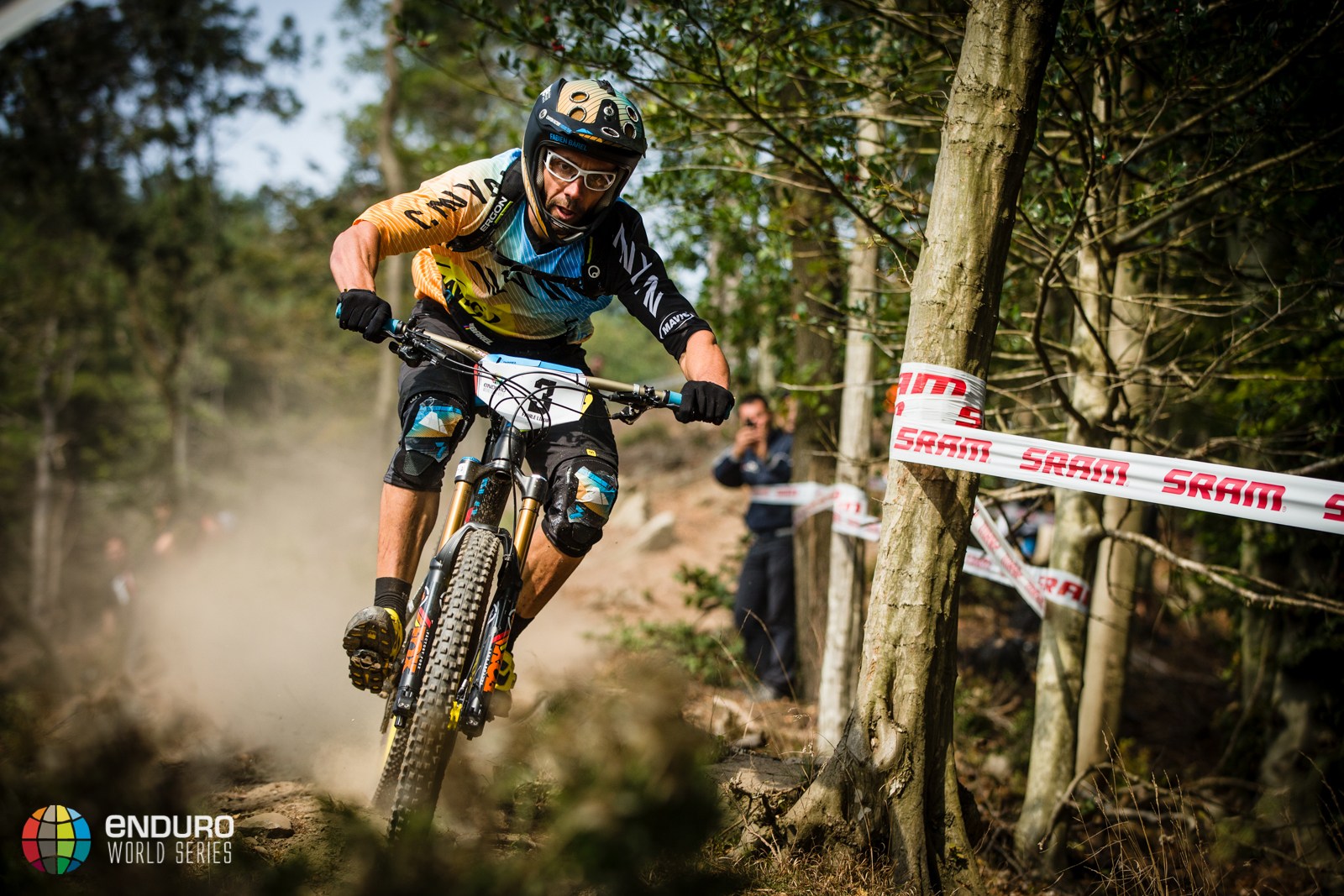
Do riders really want to go head to head against the likes of Fabien Barel, as Todd contends? Photo – Matt Wragg
Unfortunately, it seems no discussion of EWS racing can take place without the topic of difficulty taking centre stage. “Oh, but those poor amateurs, this is too much for them, it’s not fair to them…”. A principal catalyst of this discussion was the 2014 version of the Crankworx EWS, which was indeed an ambitious, hard event, made even harder by scorching temperatures. While not everyone made it to the end, many more did, and they were filled with a huge sense of accomplishment. Amateur competitors I’ve spoken to have shown resentment towards those attempting to use them as excuses for the suggestion that events be toned down in the future, and I don’t imagine that this perspective is unique to Whistler.
Amateurs from around the world want to compete in the EWS races and many are talented enough to handle the terrain and styles unique to each region. The EWS represents the pinnacle of the sport, and just because someone isn’t a sponsored pro doesn’t mean they aren’t capable of handling a tough challenge. That challenge is the very thing that drives their desire to compete in these events. The suggestion that events be toned down to accommodate the hapless amateurs is an affront to the spirit of competition. Competing in these races provides a unique challenge to the talented racers that don’t make a living on the bike, but are still skilled riders in their own right.
The uniqueness of a series like the EWS is that amateurs can compete on the same course that the pros do. But that doesn’t mean the course should be toned down, it means amateurs need to step up.
I fully understand the role of my personal biases in forming this opinion. I’ve spent over 20 years attempting to master the sport of mountain biking, and over a decade struggling to learn the intricacies and skills required to excel on Whistler’s uniquely technical terrain. I’ve taken my lumps along the way, but I’ve also been surrounded, and inspired, by superhuman talents who have pushed me both physically and mentally, on the bike and off. I’ve had successes and failures, but I try to remain true to the spirit of Whistler mountain bikers, and feel it would be a disservice to that tradition to not step up to hard challenges like the EWS.
Many don’t know Whistler’s race history, but its culture of events is forged out of our incredibly technical terrain, a desire for gnarly downhills, and the willingness to pedal for hours to get to them.
Events like Tony Horn’s Samurai of Singletrack pushed the boundaries of anything that was rational for a bike event. They were gruelling, scary, and kind of stupid. And they sold out well in advance. Every single year. They were intimidating but they were also amazing, rewarding, and spirit building. Here in Whistler, we see the challenge of a world caliber event as something to aspire to. Something that’s a little beyond our comfort zone, something that makes us question our capabilities a bit, something that challenges us to exceed our own expectations, or go down trying.
Which all leads me to the allure of the EWS, which has been that it seeks to represent a locality’s trails, terrain, race history, and in many respects that town’s traditions when it comes to mountain biking. The non-formulaic event nature is what makes the EWS special to me, and worthy of our support.
Most of these amateurs are more than capable and experienced enough, and we need to understand that we are privileged to be competing on the same field of play as riders that we admire or look up to, and that those fields demand our respect and preparation. Sometimes that won’t be enough, and we may not make it to the end.
But we’ll be back next year to try again.
Who’s keen to tackle an EWS course alongside the pros?

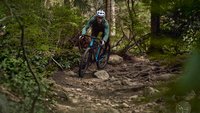

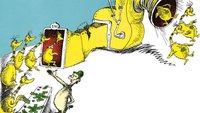

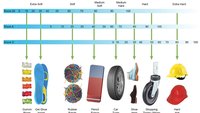

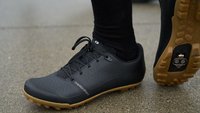
Comments
guest
9 years ago
Spot on!
Reply
bostock
9 years ago
as mountain biking gains popularity and acceptance, part of the growing pains of the sport is that every one and their grandmother seems to think that they have a right to participate. To the point that some people seem to think that they have the right not to fail. this is the point in a rant where one might throw in a gratuitous "kill your self". but I digress. buy an e bike. no one can fail at that.
Reply
cgee
9 years ago
Several years ago I raced at an Oregon Enduro Series stop in Ashland. My GF and I were shocked to discover, on race day, that the section we most liked during our pre-run, a steep (ish) treed section of single track, would not be included as a race section for our category. We were told that because of the close trees, only Cat 1 and pros would race that section. I don't have any illusions that I would be competitive in those fields but not racing the same course as other categories soured my experience. I won't participate (organizers read spend money) again at an event with such a format.
Reply
Perry Schebel
9 years ago
while last years whistler ews was certainly grueling (i didn't expect otherwise), it was also one of the funnest events i've done. the opportunity to ride the same track as the top pros is so cool. hopefully the course doesn't get neutered this year.
if i had a criticism of the current structure (allowing amateurs to race same day / course as the pros)
Reply
Cr4w
9 years ago
QFT.
"The EWS represents the pinnacle of the sport, and just because someone isn’t a sponsored pro doesn’t mean they aren’t capable of handling a tough challenge. That challenge is the very thing that drives their desire to compete in these events. The suggestion that events be toned down to accommodate the hapless amateurs is an affront to the spirit of competition."
Reply
Chris Cogsdil
9 years ago
I agree that most amatuers can handle the courses. I've seen first hand what my two sons now 12 and 15, could ride even before they had the experience they have now. I think maybe some of the amatuers should register for a different skill class and probably not be on the course the same time of day or at least all be clear of the track when the pros start their runs. I think most people could make it down most of their local trails, but most won't be able to keep pace with the pros. I still think they should be allowed to enter and participate though.
Reply
Please log in to leave a comment.